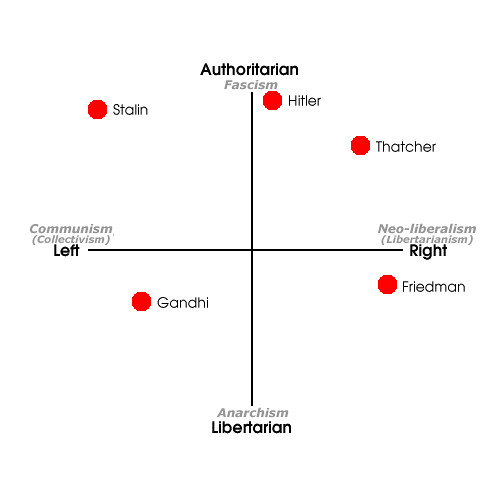The Difference Between Collectivism and Socialism
Collectivism and socialism are practices, principles, and theories which suggest that the power should be in the hands of the society as a whole; both are associated with the concepts of Karl Marx. Also, several countries such as North Korea and China may have collectivism and socialism elements. Regarding their differences, collectivism highlights group cohesion and long-term relationships instead of independence and personal pursuits. In comparison, socialism focuses on public instead of private ownership. The following discussions further delve into these distinctions.

What is Collectivism?
As a political theory, collectivism is related with communism since it suggests that power should belong to the citizens as a whole and not only to several individuals. It is then more advantageous to create a structure which enables common goals. Nonetheless, this principle is quite challenging to realize as demonstrated by the Soviet communism’s endeavored collectivist society.
Moreover, collectivism is the practice or principle of giving more importance to unity over personal goals. It sees long-term relationships as vital since it fosters the society’s group goals. The members in a collectivist society can readily give up their own pursuits for the benefit of the group. Someone with a collectivist principle may even view being lauded as disconcerting. Also, a paper on decision-making implied that collectivists tend to be less independent and more loyal to central ingroup members (Le Febvre & Franke, 2013). This cultural pattern is more common among the conventional communities in Latin America, Asia, and Africa. Collectivism is often described as the opposite of individualism which is more commonly observed in the modern societies in North America, New Zealand, Australia, and Europe (Triandis, 2001).
Regarding its proponents, Jean-Jacques Rousseau, a Genevan philosopher, is identified as the earliest modern proponent of Western collectivist ideas with his “Du contrat social” (social contract) of 1762 which advocated that true freedom and being is found in submitting oneself to the community’s general will. This was then supported by Georg Wilhelm Friedrich Hegel, a German philosopher, in the 19th century when he argued that unqualified submission to the nation is the ultimate expression of social morality and is the key to genuine being and freedom. This was then later resonated by Karl Heinrich Marx, a German philosopher, when he wrote that “It’s not men’s consciousness which determines their being, but their social being which determines their consciousnesses” (Encyclopaedia Britannica, 2020).

What is Socialism?
Socialism posits that the society should own or control properties and natural resources for the benefit of the group. In this perspective, people do not work for their own, everything that they produce is the society’s output and everyone benefits from each other’s efforts. Since it promotes private ownership, capitalism is often specified as the opposite of socialism. Socialists argue that giving power to only several individuals undermines genuine freedom and equality (Dagger, 2020).
The origin of socialism is attributed to the opposition to individualism and capitalism’s excesses. In the 18th and 19th centuries, western Europe experienced rapid industrial and economic growth, this caused rich individuals to become richer and poor families to become poorer. This state of social inequality spurred early socialist thinkers such as Robert Owen (a British philanthropist, social reformer, and Welsh textile manufacturer), Claude Henri de Rouvroy, comte de Saint-Simon (a French political and economic theorist and businessman), Karl Heinrich Marx (a German philosopher, sociologist, journalist, and socialist revolutionary), and Vladimir Lenin (a Russian revolutionary and politician) It was predominantly Lenin who developed and promoted the earlier socialists’ ideas (Kenton, 2020).
Difference between Collectivism and Socialism
Definition
Collectivism is the practice or principle of giving more importance to unity over personal goals. It sees long-term relationships as vital since it fosters the society’s group goals. In comparison, socialism posits that the society should own or control properties and natural resources for the benefit of the group. In this perspective, people do not work for their own, everything that they produce is the society’s output and everyone benefits from each other’s efforts.
Contrasted with
Collectivism is often described as the opposite of individualism. Collectivism focuses on group cohesion, long-term relationships, and group goals. On the other hand, individualism highlights human independence and personal pursuits. As for socialism, capitalism is often specified as its opposite. Capitalism promotes private ownership while socialism advocates public ownership.
Location
Collectivism is more common among the conventional communities in Latin America, Asia, and Africa (Triandis, 2001). Some of the countries which are more collectivistic include India, Taiwan, Brazil, Guatemala, and Brazil (Cherry, 2020). Though there are no “pure” socialist governments, North Korea, China, and Cuba have been described as having strong socialist elements since they mostly have state-run economies (Seth, 2020).
Proponents
Regarding collectivism, the proponents include Jean-Jacques Rousseau, G.W.F. Hegel, and Karl Marx (Encyclopaedia Britannica, 2020). In comparison, the proponents of socialism include Robert Owen, Claude Henri de Rouvroy, comte de Saint-Simon, Karl Heinrich Marx, and Vladimir Lenin (Kenton, 2020).
Collectivism vs Socialism

Summary
- Collectivism is the principle of giving more importance to unity over personal goals while socialism posits that the society should control properties and natural resources for the benefit of the group.
- Collectivism is often specified as the opposite of individualism while socialism is often contrasted with capitalism.
- Regarding collectivism, the proponents include Rousseau, Hegel, and Marx. In comparison, the proponents of socialism include Owen, Saint-Simon, Marx, and Lenin.
- Difference Between Hematoma and Melanoma - February 9, 2023
- Difference Between Bruising and Necrosis - February 8, 2023
- Difference Between Brain Hematoma and Brain Hemorrhage - February 8, 2023
Search DifferenceBetween.net :
Leave a Response
References :
[0]Cherry, K. Understanding the Collectivistic Cultures. Verywell Mind, 2020. https://www.verywellmind.com/what-are-collectivistic-cultures-2794962#:~:text=Countries%20considered%20collectivistic%20include%20Japan,Argentina%2C%20Brazil%2C%20and%20India.
[1]Encyclopaedia Britannica. Collectivism, 2020. https://www.britannica.com/topic/collectivism
[2]Kenton, Will. Socialism. Investopedia, 2020. https://www.investopedia.com/terms/s/socialism.asp
[3]Seth, Shobhit. Socialist Market Economies: How China, Cuba, and North Korea Work. Investopedia, 2020. https://www.investopedia.com/articles/investing/081514/socialist-economies-how-china-cuba-and-north-korea-work.asp
[4]Triandis, H.C. Collectivism: Cultural Concerns. International Encyclopedia of the Social and Behavioral Sciences, 2001, 2227-2232.
[5]Image credit: https://live.staticflickr.com/65535/48170134471_d25dde876d_b.jpg
[6]Image credit: https://live.staticflickr.com/168/363021827_7c01720aa5.jpg
